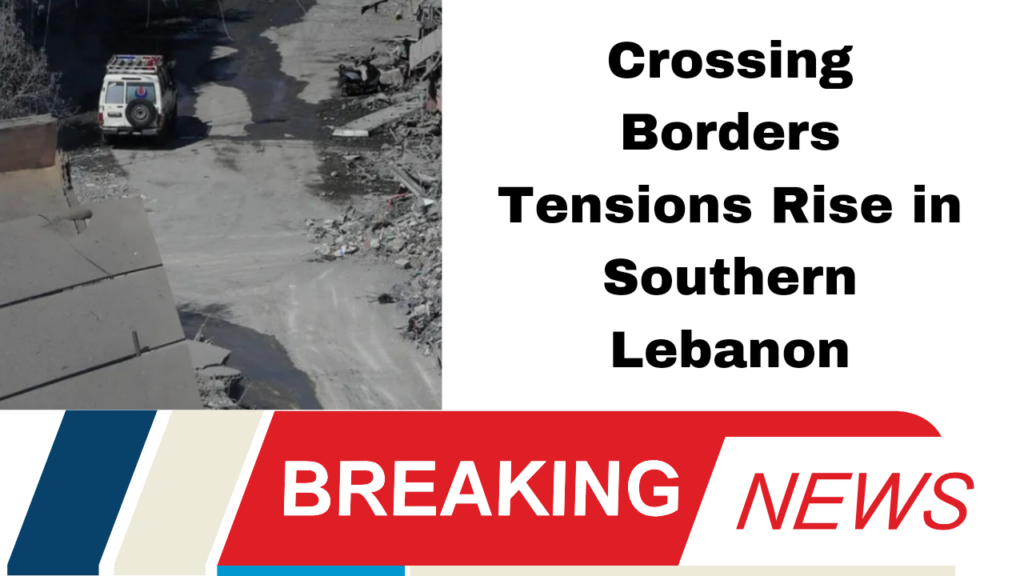On Sunday, Israeli tanks forcibly entered a United Nations peacekeeping base in southern Lebanon, endangering the lives of peacekeepers stationed there, according to the U.N. mission. This incursion follows recent criticism of Israeli forces after multiple attacks resulted in injuries to at least four peacekeepers.
The Israeli military launched operations in Lebanon two weeks ago, aiming to halt rocket fire from the militant group Hezbollah. The U.N. peacekeeping force, known as UNIFIL, has been active in southern Lebanon for 40 years, tasked with monitoring the region and preventing military buildup. Recently, Hezbollah has intensified its activities near the border, launching rockets at Israel in support of Hamas militants in Gaza.
Early Sunday morning, the U.N. reported that two Israeli Merkava tanks destroyed the main gate of the peacekeeping base and entered the facility. While peacekeepers sheltered during the incident, the U.N. emphasized that such actions could undermine its neutral status, potentially making it a target for Hezbollah. The tanks left after approximately 45 minutes, following a protest filed by the U.N. mission.
Israeli officials have expressed concerns over UNIFIL’s effectiveness in preventing Hezbollah’s military presence and have called for the peacekeepers’ withdrawal from the region. Prime Minister Benjamin Netanyahu reiterated this demand, claiming that the U.N. force has become a liability in the ongoing conflict.
The U.N. peacekeeping force has rejected calls for withdrawal, emphasizing that their presence is mandated by the U.N. Security Council. U.N. Secretary-General António Guterres does not hold authority over UNIFIL’s operations. The situation has drawn international attention, with leaders like Italy’s Prime Minister Giorgia Meloni condemning the Israeli attacks on U.N. positions.
U.S. Defense Secretary Lloyd J. Austin III also stressed the need for the safety of peacekeepers during discussions with Israeli officials. In response to the recent violence, the Israeli military reported significant operations against Hezbollah, targeting around 200 militant sites in Lebanon.
Ongoing Violence and Humanitarian Concerns
As fighting continues, reports indicate rising casualties among both civilians and military personnel. The Lebanese Red Cross and local authorities have reported multiple fatalities and injuries in southern cities, raising alarms about the humanitarian impact of the escalating conflict.
Philippe Lazzarini, head of the U.N. agency aiding Palestinians, warned that the war’s expansion into Lebanon hampers efforts for a ceasefire, highlighting the urgent need for humanitarian relief across the regional
The recent incursion by Israeli tanks into a U.N. peacekeeping base marks a significant escalation in the ongoing conflict between Israel and Hezbollah. With international leaders calling for restraint, the situation remains precarious, underscoring the urgent need for diplomatic solutions to prevent further violence and protect civilian lives.
